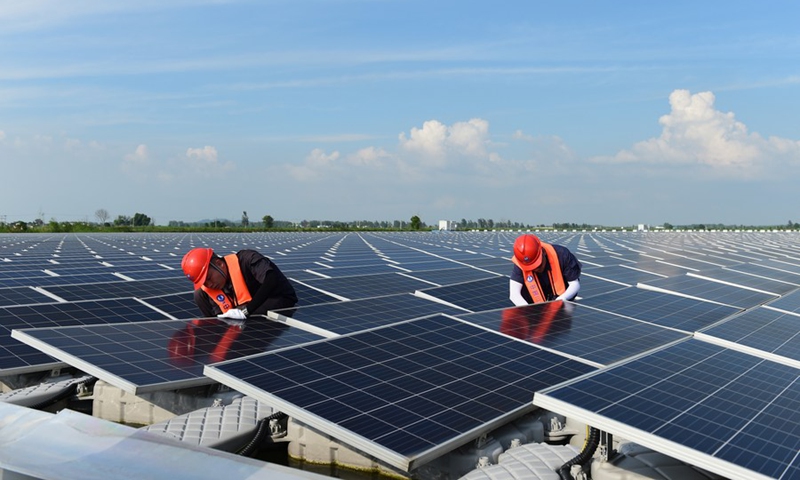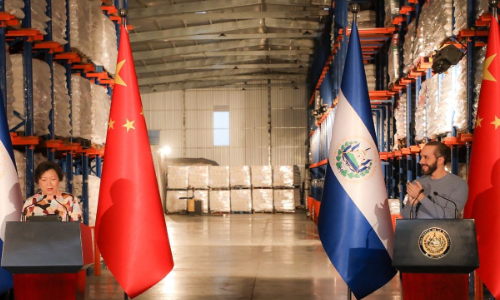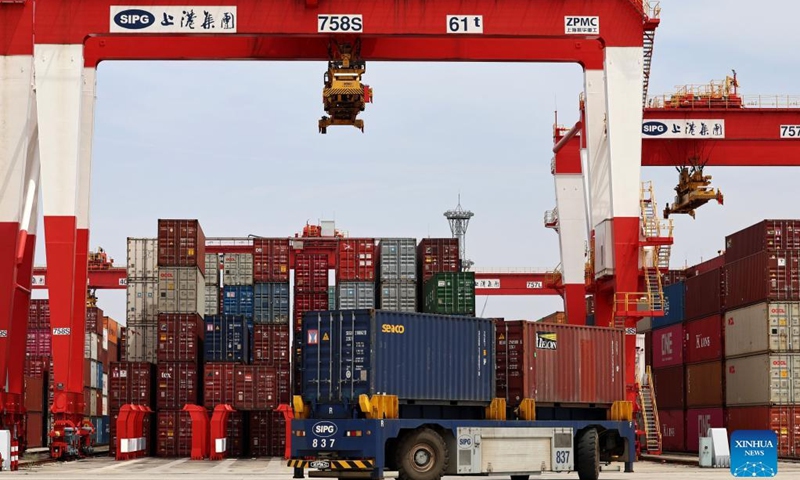China, Latin America set to deepen cooperation in technology, satellite communications: FM
By Global Times Published: Sep 08, 2022 08:06 PM

Engineers conduct maintenance work at a floating solar farm in Panji District of Huainan City, east China's Anhui Province, July 20, 2021. Photo: Xinhua
China stands ready to further enhance and expand practical cooperation with Latin American countries, a spokesperson for China's Ministry of Foreign Affairs said on Thursday, after the two sides recently agreed to deepen cooperation in areas such as technology and satellite communications.
China-Latin America cooperation has been continuing to expand in a growing number of areas in recent years, despite some external factors, including the COVID-19 pandemic and the US' intensifying attempt to undermine China-Latin America ties.
"From jointly guaranteeing food security to mutual access to each other's markets for unique agricultural, animal husbandry and fishery products, cooperation between China and Latin America has not been hindered by distance, but instead has yielded fruitful results," Mao Ning, the spokesperson, told a briefing in Beijing.
At the briefing, Mao highlighted agreements and consensus reached by the two sides at the China-LAC Scientific and Technological Innovation Forum held online last week to expand cooperation in various areas.
The Ministry of Science and Technology of China signed a memorandum of understanding on cooperation with the relevant scientific and technological departments of Latin American and Caribbean countries to promote the construction of a sustainable food innovation center.
During the forum, the two sides also agreed to continue to deepen cooperation in clean energy, digital technology, agricultural science and technology, satellite communications and other fields, according to Mao.
More than 20 representatives of scientific and technological authorities of Latin American and Caribbean countries attended the meeting online. Representatives expressed strong expectations for strengthening China-Latin America cooperation in agricultural technology, the digital economy and technology-enabled development.
The tech forum has become one of the most important platforms for China and Latin American and Caribbean countries to understand their cooperation needs, share best practices, build development consensus, and strengthen scientific and technological relations, said Wang Zhigang, Minister of Science and Technology of China, according to people.com.cn on Thursday.
Last year, trade between China and Latin America exceeded $450 billion for the first time. China built and put into use more than 100 infrastructure facilities in Latin America from 2005 to 2020, creating more than 600,000 local jobs, according to the spokesperson on Thursday.
China and Latin America has successfully held the third Ministers' Meeting of the China-CELAC Forum, and reached a new broad consensus on deepening China-Latin America strategic mutual trust and practical cooperation in the next three years, Mao said.
Latin American countries are also actively seeking to expand cooperation with China.
Manuel Tovar Rivera, Minister of Foreign Trade of Costa Rica, said at the official WeChat account of the China International Import Expo (CIIE) on Thursday that Costa Rica seeks more opportunities to enter the Chinese market and promote trade between the two countries. The CIIE has played a crucial role in this effort.
This year marks the 15th anniversary of the establishment of diplomatic relations between China and Costa Rica.



